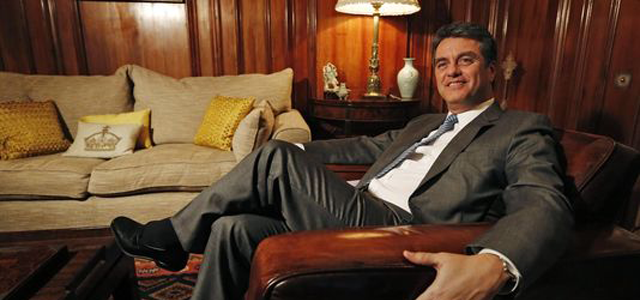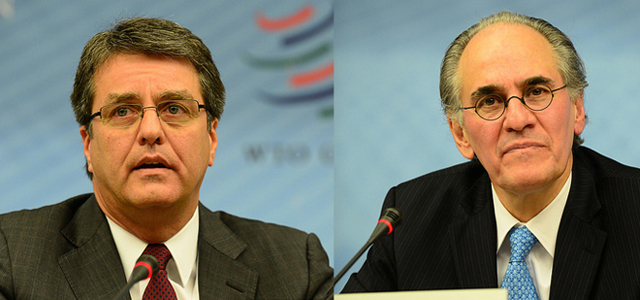Pascal Lamy, Director General of the World Trade Organization, in the October 2010 Global Policy journal.
“The fact that the governments that represent countries at international organizations are the result of citizens’ choices through domestic elections is, in itself, not sufficient to ensure the legitimacy of the international organizations. …
[The] international community must do a better job of adequately reflecting the interests of citizens. This means integrating democracy more fully into global governance.”




Legitimacy in international organizations, and in international law in general, is a fundamental issue. When such legitimacy weakens, or fails, the whole system is at risk. The best example of this these past few years is the European Union – the world’s most integrated international organization – who is cruelly suffering from what is perceived by citizens as a “democratic deficit”, considerably weakening the institutions and its policies.
As for Lamy’s suggestions, I appreciate that he pushes the issue forward, but he remains murky at best on the modalities. It’s a difficult problem with no easy solution: should IOs involve parliamentarians from Member States? NGOs? citizens directly?
And allow me to be somewhat provocative – but is this not first and foremost the citizens’ responsibility? Organizations like the WTO and the EU do try as much as they can to be transparent – and a lot of information is out there for those who take the time to look.
In established democracies, such as the United States or Western European countries, shouldn’t citizens, of their own initiative, hold their governments accountable for decisions taken at an international level, even within IOs, during each election cycle? In most cases, they choose not to do so – and going on to blame the organizations seems to me a too-easy way out.
To be fair, Pascal Lamy raises himself my last point: “National actors – political parties, civil society, parliaments and citizens – need to ensure that issues that are part of the ‘global level’ are discussed at the ‘domestic level’.”
So I should rephrase my last comment to say that I agree with him on that point.